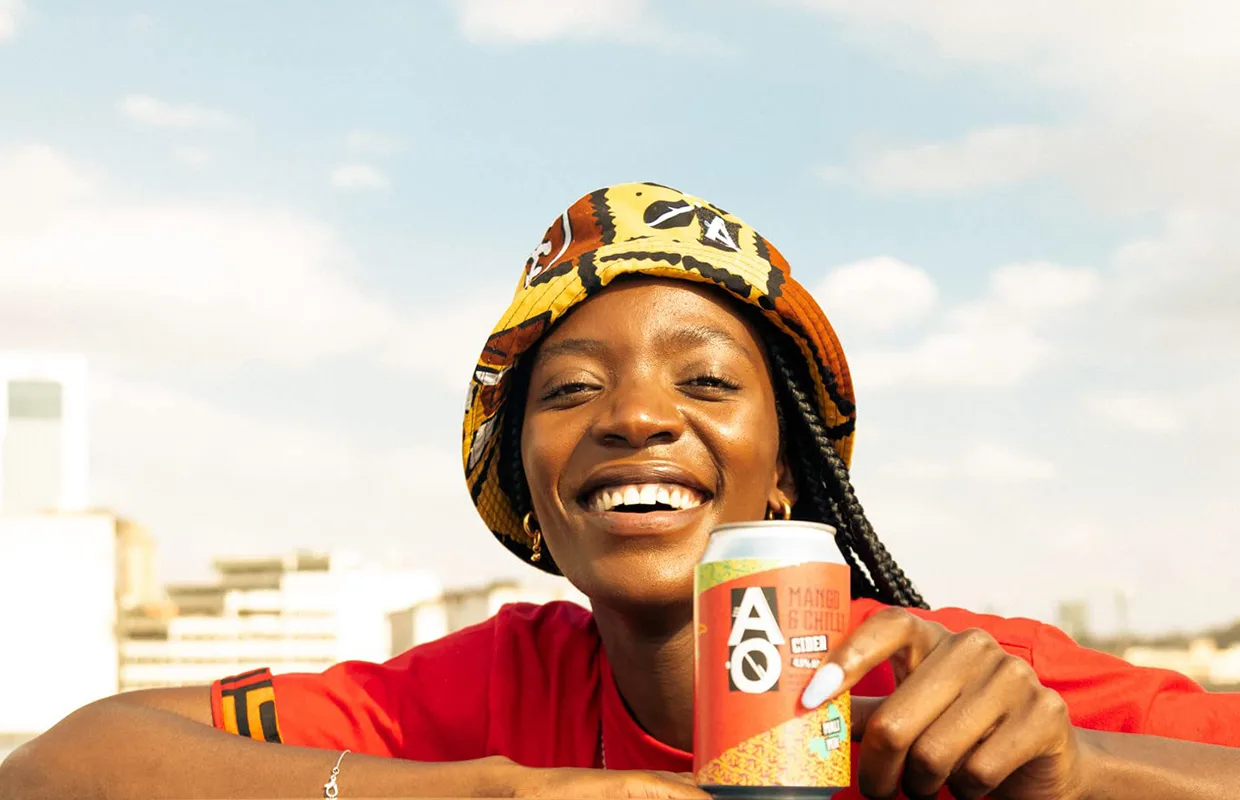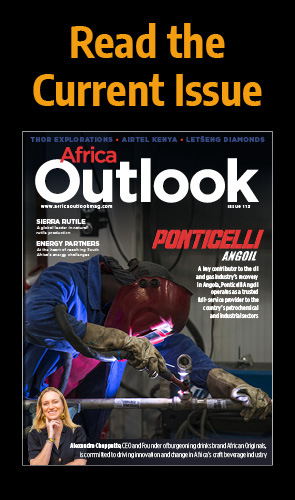Recently recognised as Woman Industrialist of the Year at this year’s Kenya Association of Manufacturers’ (KAM) Women in Manufacturing Awards, Alexandra Chappatte, CEO and Founder of burgeoning drinks brand African Originals, is committed to driving innovation and change in Africa’s craft beverage industry.
CELEBRATING IDENTITY THROUGH TASTE
Having begun its journey in 2016 with a humble container set-up in Nairobi, Kenya, African Originals seeks to celebrate Africa’s bold spirit, rich heritage, and local ingredients through its premium craft beverages.
Today, a state-of-the-art facility and burgeoning product portfolio – ranging from Kenyan Originals cider, a 5.8 Spirits brand and, more recently, an original gin product – have seen the company thrive and expand.
Yet, its mission to celebrate African identity through quality beverages and experiences remains the same.
Blending innovation with tradition to create a lasting impact, African Originals is an agent of change, weaving sustainability and community into everything it does.
From empowering small-scale farmers to supporting female entrepreneurs and collaborating with Maasai Mara communities, the company seeks to create a positive and lasting impact across the continent.
Due to its originality and unique vision, African Originals continues to succeed and grow in today’s ever-changing food and beverage landscape.
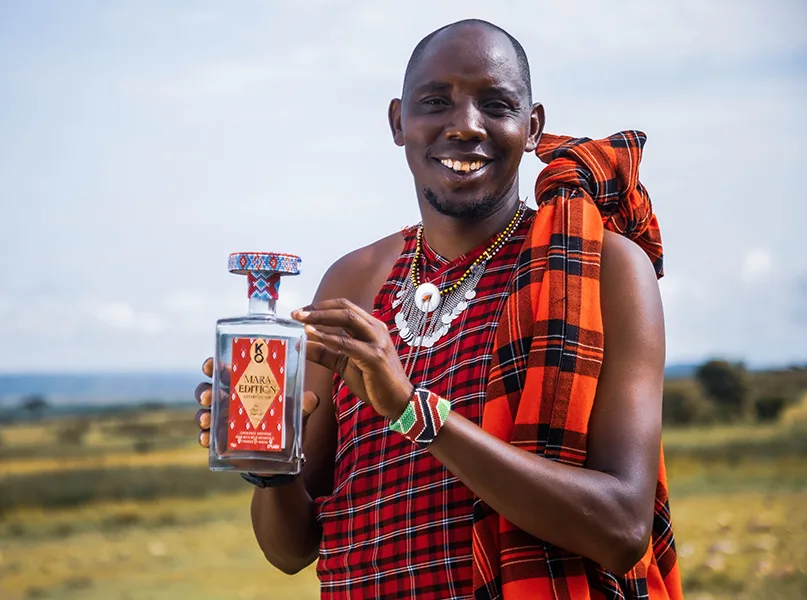
Q&A WITH ALEXANDRA CHAPPATTE, CEO AND FOUNDER, AFRICAN ORIGINALS
Firstly, could you provide some insight into your career to date and explain how you became interested in the food and beverage industry?
Alexandra Chappatte, CEO and Founder (AC): The spark started young. My dad taught me how to make homemade Pimm’s, and I’ve been drawn to creating and experimenting with flavour ever since. I began my career in blue-chip fast-moving consumer goods (FMCGs) with Nestlé, working on household name chocolate and confectionery brands.
A few years later, I moved to West Africa to lead marketing for Pernod Ricard, managing brands like Absolut, Chivas, and Jameson.
Living and working in Africa, I was struck by how few quality food and beverage products were made locally. That impression deepened when I moved to Kenya; the bar scene was split between low-quality mass-market drinks and expensive imports.
There was nothing local, well-made, and affordable – especially outside of beer. That gap was the starting point for African Originals.
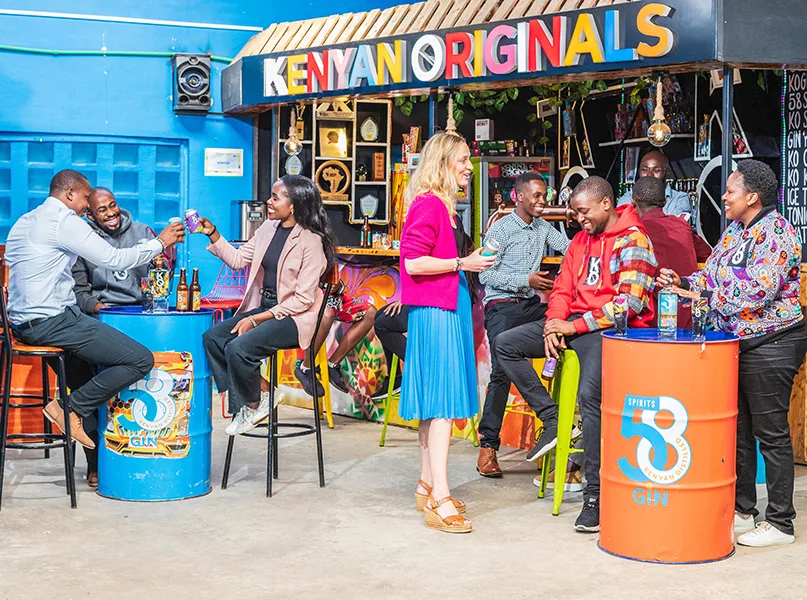
How have you seen the craft beverage industry in Africa evolve, and what current trends have you seen emerge?
AC: It’s still early days for the craft beverage industry across much of Africa, but momentum is building. There’s a shift happening – local no longer equates to low quality. Consumers are more curious, informed, and looking for brands that tell a story.
There’s also a move towards simplicity in flavour with bold, recognisable ingredients that stand out. Our Pineapple and Mint Cider and Pink Peppercorn Gin are good examples of that trend.
The barriers to entry remain high, especially in spirits, but the opportunity is huge for those who can navigate it. As the market matures, I expect to see even more innovation coming through.
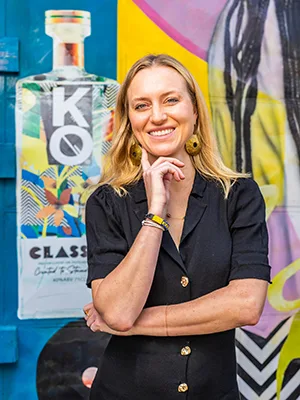
Could you provide an overview of African Originals’ products and locations across Africa? What client base do you typically serve?
AC: We produce craft ciders, spirits, tonics, and iced teas under three brands – Kenyan Originals, African Originals, and 5.8 Spirits.
Everything is made in-house at our 28,000-square-foot facility in Nairobi, from chopping and pressing fruit to blending, bottling, and packaging.
We currently distribute to over 4,000 outlets in Kenya, including bars, supermarkets, and wine and spirit stores, and we’re expanding across East Africa, starting with Uganda. We also have a small presence in the UK via select bars and online platforms.
Our core customers are middle-class Kenyan millennials, who are curious, quality-conscious, and proud of where they’re from.
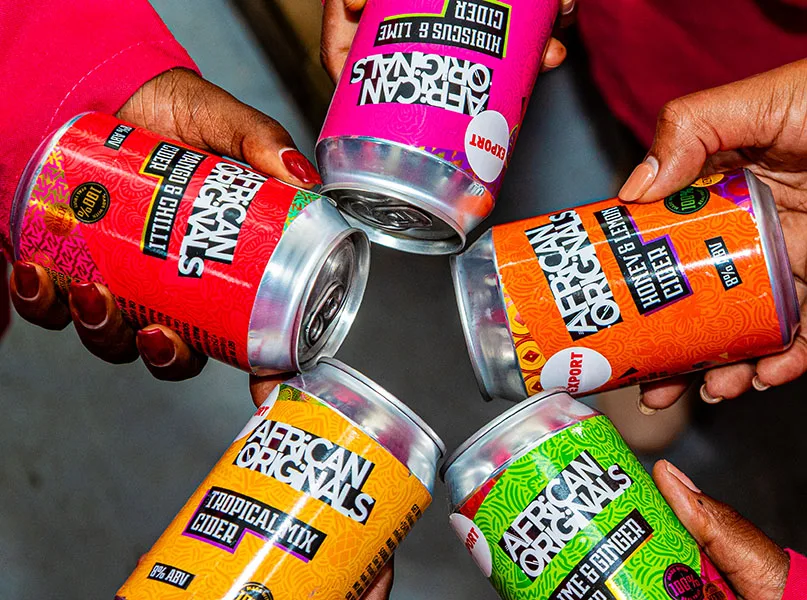
Could you share some key details about your mission to celebrate Africa’s bold spirit and rich heritage through premium craft beverages? How do you reflect this in your products?
AC: Our mission is to celebrate African identity through crafted beverages and experiences. That starts with what goes into the bottle – everything we make is rooted in real, local ingredients.
From purple passionfruit in Laikipia and pineapples from Kiambu to roses from Mount Kenya and pink peppercorns from Naivasha, we prioritise authenticity and avoid artificial flavouring altogether.
But it’s also about culture. Our 5.8 spirit bottles feature matatu-style art (a nod to the bold, expressive artwork on Kenya’s iconic minibuses), and we collaborate with Kenyan designers through our ‘Krafted By’ project to style our brand ambassadors like Nairobi icons.
Mara Gin is another example – it’s crafted with botanicals foraged by the Maasai and finished with beadwork by Maasai women. Flavour, design, and story – all tied to one place.
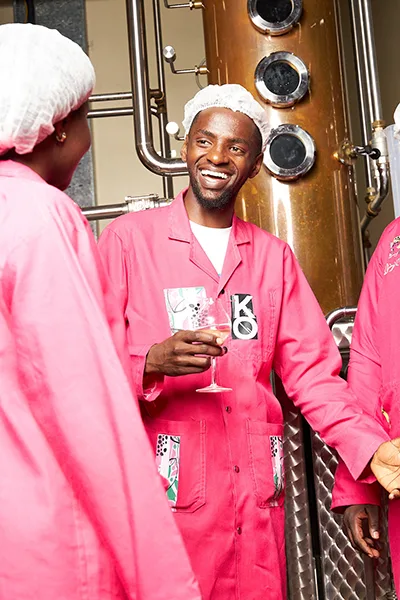
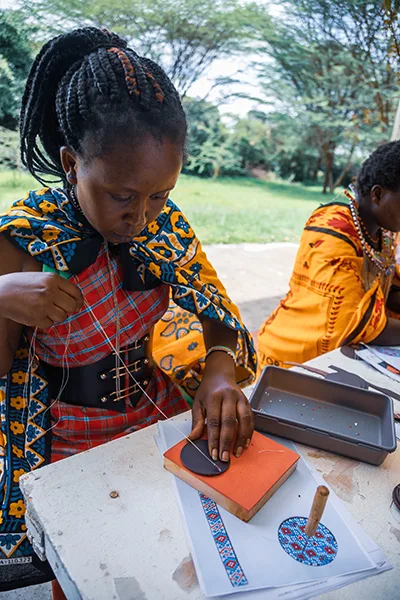
What, in your opinion, is African Originals’ key differentiator?
AC: We’re not trying to be the “better version” of anyone else – we’re creating something entirely original.
We own our production, brands, and distribution, working directly with smallholder farmers to source real, local ingredients.
We were also the first alcohol manufacturer in Africa to receive B-Corp certification, which reflects our broader commitment to social and environmental performance.
From a product standpoint, we like to break the rules. Our ciders, for example, are more like cocktails in a bottle – real fruit, layered with local spices, and sitting at eight percent alcohol by volume (ABV).
The tone, design, and values of our brands speak directly to the African Original – the hustler, the creator, the maverick. That’s our tribe.
Many of your gin products are proudly distilled with Kenyan ingredients. Why is it so important for the company to honour the Kenyan heritage of its products?
AC: Kenya is incredibly rich botanically, creatively, and culturally, so rather than import lavender, we ask – why not wild basil or bitter orange from Kilifi?
It’s about more than flavour – it’s about provenance, pride, and telling a story through what you taste. When someone sips our gin, they’re experiencing a bit of Kenya’s terroir. That’s what makes it truly original.
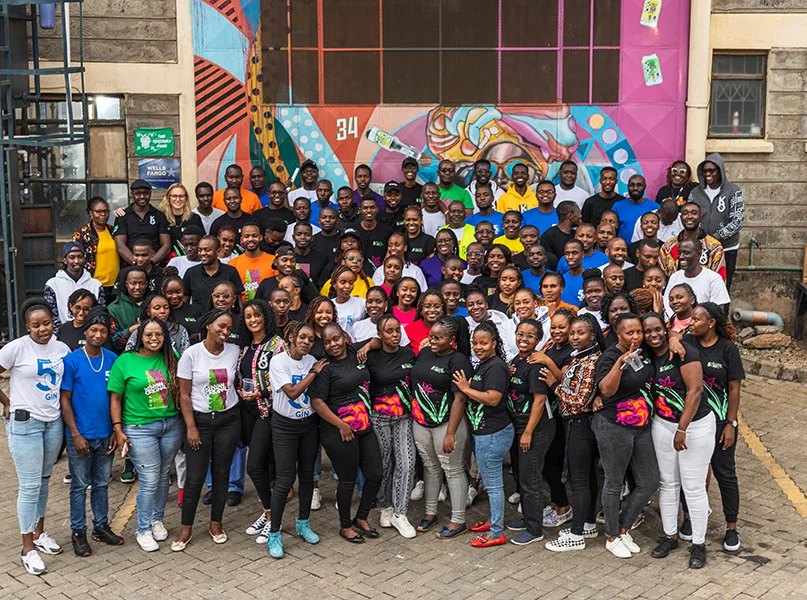
Can you tell us about your sustainability partnership with Bottle Logistics East Africa Limited? How does it align with your commitment to minimising bottle waste and championing a sustainable future for the beverage industry?
AC: As a relatively small producer, it’s not viable for us to run our own full-scale bottle collection system.
That’s why we partner with Bottle Logistics East Africa, who help us close the loop by collecting used glass bottles from trade, cleaning them, and returning them to us for reuse. They currently recover around 30 percent of our bottles.
We also source surplus fruit from smallholder farmers and give our fruit waste to local farmers to use as animal feed. Sustainability is built into our supply chain – it’s about making better choices at every step.
Can you tell us more about your work to empower local communities, champion women-led initiatives, and push boundaries? How do you achieve these things in your day-to-day activities?
AC: Community is central to everything we do. From the Maasai women who bead our Mara Gin bottles to the matatu artists painting our delivery tuk-tuks, we actively seek creative partnerships with local talent.
We’ve invested in training for the Maasai women through the Opportunity Factory, which helps them to develop more contemporary styles and access broader markets. Our team is built from the ground up – many of our managers started in entry-level roles and were promoted internally.
We’ve also launched ‘She Originals’, a female entrepreneurship initiative that supports and mentors women-led businesses. It’s a way to build a more inclusive ecosystem around our brand.
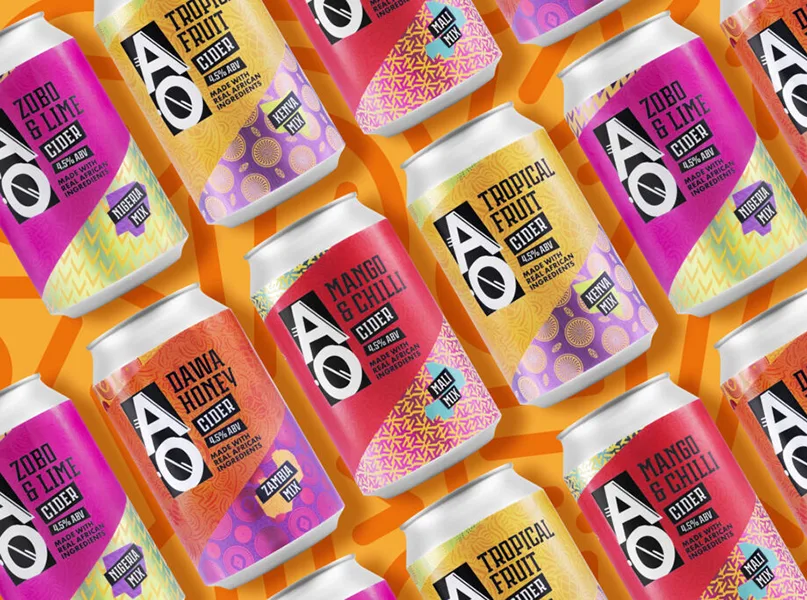
AO: Finally, what are the company’s key priorities for the year ahead? Can you discuss any product developments or plans for expansion in the pipeline for 2025?
AC: 2025 is about scale. We’re targeting upwards of USD$12 million in revenue by the end of the year and plan to double our distribution footprint in Kenya from 4,000 to 8,000 outlets.
We’re launching in new markets such as Uganda and developing new products in the cider and canned cocktail space.
There’s still so much potential to tap across the continent – we’re just getting started.
Craft doesn’t have to mean niche. Our goal is to build something bold, big, and truly African – without losing the care, character, and creativity that defines craft.
This is just the beginning. The continent is bursting with untapped flavour, culture, and potential – and we’re here to bottle it.



